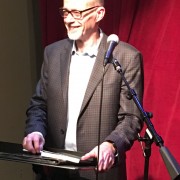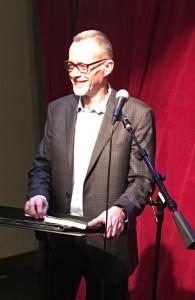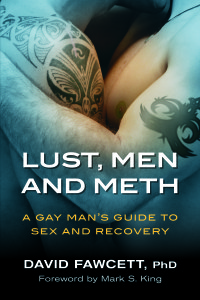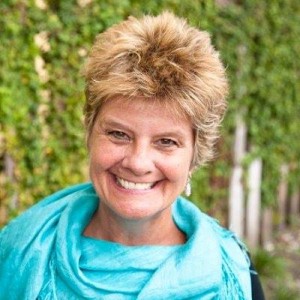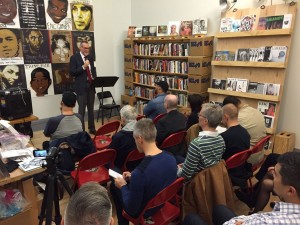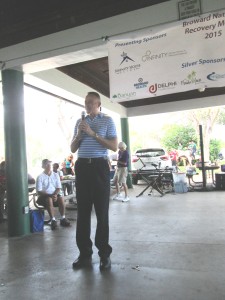
This article was originally posted on TheBody.com on David's blog "Riding the Tiger: Life Lessons from an HIV-positive Therapist"
Even the bed sheet touching my skin was intolerable. The sharp pain was centered in my toes and had kept me sleepless for three nights in a row. It was the worst neuropathy I had ever experienced and I was near despair. My only relief was to lower my feet and sit up in a chair trying to sleep. That was my situation last year when, for some unknown reason, my neuropathic pain suddenly escalated. Over the years I had been relatively lucky. I had become accustomed to numb and tingly feet but I had rarely experienced such severe discomfort. Only on one other occasion, when I broke a toe, had the nerves in my feet rebelled with excruciating stinging which had lasted for months.
I am still uncertain what caused the severe flare up last year, but at that time I needed pain medication. My physician prescribed it until the pain receded. The medications blunted the discomfort but hardly stopped it, and had the undesirable effect of making me feel muddled and out of sorts. I tried other things as well, such as lidocaine patches, but they proved no match for my raging nerves. Thankfully, after several weeks, the pain faded as quickly as it came. I was relieved yet unnerved by the severity of the discomfort and the mixed blessing of the pain medications.
I share this experience to convey that I understand the disabling effects of severe pain and our complicated relationship with the medications that control it. We may need these drugs at times, but they can quickly and all too easily create other significant problems. There is a constant temptation to use them, as well as recreational drugs, to self-medicate both our physical and emotional discomfort.
While I choose not to use mood altering substances in my own life, I am no hero when there is a medical condition causing disabling pain. I have had patients who were in recovery from substance abuse and who had a particularly difficult time wrestling with the issue of prescribed pain medications. I totally respect the desire to remain clean from mood altering substances, indeed, much of my work is toward that end. But suffering extreme pain is not healthy for our bodies or our emotions; living in pain is not heroic. Anyone in this situation needs to find a manageable balance between controlling their discomfort and avoiding the potential damage that these medications can inflict.
This isn't a decision that should be made in isolation. The experience of pain is subjective and it is extremely easy to drift into self-delusion about the need for these medications. They can quickly become the focus of nearly every waking moment: making sure there is a supply, obsessing about the next dose, and becoming exquisitely sensitive to anticipation anxiety that the pain will worsen or return. Psychology begins to impact our decisions as much as physiological processes themselves.
So what is someone living with HIV and experiencing significant pain supposed to do? My recommendation is to be as informed as possible and work with your physician, and possibly a pain management specialist, to control the pain in the safest possible way.
It has been my experience that some physicians treating HIV dispense potentially problem-causing medications such as opiates (hydrocodone, oxycodone) and benzodiazepines (Valium, Xanax) entirely too freely. I see the results in my office when my patients add addiction to their existing problems. In south Florida many HIV docs are now referring all such cases to pain management specialists. This has mixed results: they often offer a better range of pain control options but the patient has yet another specialist to include in their already crowded calendar of medical appointments.
If one is referred to such a specialist it is extremely important to inquire about their credentials, which should include a board certification. There are many pain clinics that operate simply as pill mills feeding a large supply of opiates that end up in the hands of addicts. The city where I live (Fort Lauderdale) has the sad reputation of being the capital of such pill mills with visitors coming from as far away as Ohio to get pain meds in bulk. Fortunately, recent joint efforts by law enforcement and the medical community have resulted in a great reduction of such clinics.
Besides working closely with their physician (and perhaps a pain specialist) there are some other things people need to know about pain meds and the risks of self-medication. Here are a few:
Potential for Addiction
"A doctor prescribed it!" It is the responsibility of every patient to take an active role in making medical decisions. As I noted above, some docs are all too happy to overprescribe. Others succumb to the pleas (and yes, sometimes manipulation) of their patients demanding pain meds. Whether prescribed or obtained on the street, opiates have a high potential for addiction. For that reason, their merits need to be carefully balanced with their consequences.
Across the country we are seeing a vast increase in the amount of prescribed opiates and a cross-over effect to heroin. Many people who have become physiologically addicted move to heroin when doctors refuse to renew their prescriptions. In other cases, prescription drugs, which are considered "safer" than street drugs, are sometimes illegally obtained for pain relief as well as for recreational use. All of this increased used of opiates has resulted in a dramatic rise in the amount of hospital admissions and in the stunning fact that, in the US, prescription drugs now account for more overdose deaths than street drugs.
Drug Interactions
Some opiates, particularly methadone, interact with HIV medications in powerful ways. Because both are processed by the same metabolic system in the liver (CYP-450), some antiretrovirals can cause a significant reduction in blood levels of drugs such as methadone. This can actually precipitate withdrawal symptoms long before another scheduled dose. In one study Efavirenz (Sustiva) created the need for a 50% increase of methadone to prevent withdrawal. In another, Norvir reduced heroin levels by as much as 50%, increasing the likelihood for overdose. Kaletra can also cause methadone levels to become subtherapeutic. On the other hand, the levels of some HIV drugs, such as didanosine and stavudine, were significantly reduced when used with methadone. Such a reduction can lead to drug resistance. Alternatives to methadone, such as Suboxone, appear to have less interactive potential with HIV medications. Ultimately it is essential to be honest with your physician about all the drugs you are taking – both prescription and recreational – even if they're for purposes of self-medication. It could save your life.
What about marijuana?
The medical use of marijuana is a major topic of discussion in nearly every community in the United States. Research shows that THC compounds do have a therapeutic effect for both pain management and for mitigation of other symptoms and side-effects. The down side is that sustained use of marijuana can create psychological dependence and marijuana smoke contains more toxins than cigarette smoke. Additionally, the dosage of THC ingested by smoking marijuana is inconsistent. Speak with your physician about the possibility of synthetic THC which addresses some of these issues.
What about emotional pain?
Living with HIV is a difficult experience that creates abundant opportunities for anxiety, depression, hopelessness, and numerous other negative emotions. It is tempting to numb these feelings with the use of mood-altering drugs, both prescribed and recreational. Unfortunately this only compounds the problems by driving uncomfortable feelings not to resolution but underground, impacting overall mental and physical health, and often adding addiction to the mix.
I believe that everyone living with AIDS requires not only antiretroviral medications to remain healthy but daily emotional care as well. This can take the form of meditation, relaxation, connecting with others, quiet time to soothe nerves, recreation to shift attention, and an endless list of other activities that restore our balance. When we experience excessive physical pain we should consult with our medical providers to select the best course. At other times, investing in healthy alternatives is the best form of self medication.


